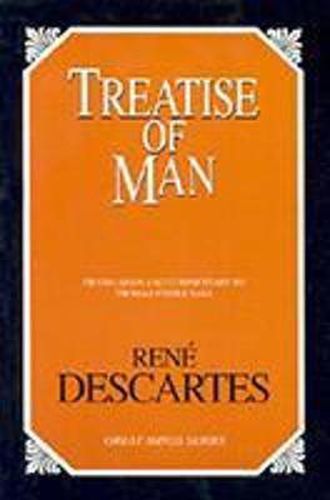Readings Newsletter
Become a Readings Member to make your shopping experience even easier.
Sign in or sign up for free!
You’re not far away from qualifying for FREE standard shipping within Australia
You’ve qualified for FREE standard shipping within Australia
The cart is loading…






Besides his more famous works of philosophy - Discourse on Method , Meditations on First Philosophy , and Principles of Philosophy - Descartes devoted a great deal of time and thought to the study of physiology and anatomy. An account of his activities in 1629 reports that he visited butcher shops on an almost daily basis to study specific animal organs, and he practised dissection and even vivisection to explore the workings of major organ systems. In the 1630s, he assisted in the dissection of human cadavers - all to satisfy his intense curiosity about how bodies, animal and human, work. The fruits of this research can be found in his Treatise of Man , a work that he decided not to publish for fear of suffering the same fate as Galileo. Consequently, this fascinating treatise did not appear until twelve years after his death. This is a landmark work that students of history, medicine, biology, and the history of science will find richly rewarding.
$9.00 standard shipping within Australia
FREE standard shipping within Australia for orders over $100.00
Express & International shipping calculated at checkout
Besides his more famous works of philosophy - Discourse on Method , Meditations on First Philosophy , and Principles of Philosophy - Descartes devoted a great deal of time and thought to the study of physiology and anatomy. An account of his activities in 1629 reports that he visited butcher shops on an almost daily basis to study specific animal organs, and he practised dissection and even vivisection to explore the workings of major organ systems. In the 1630s, he assisted in the dissection of human cadavers - all to satisfy his intense curiosity about how bodies, animal and human, work. The fruits of this research can be found in his Treatise of Man , a work that he decided not to publish for fear of suffering the same fate as Galileo. Consequently, this fascinating treatise did not appear until twelve years after his death. This is a landmark work that students of history, medicine, biology, and the history of science will find richly rewarding.